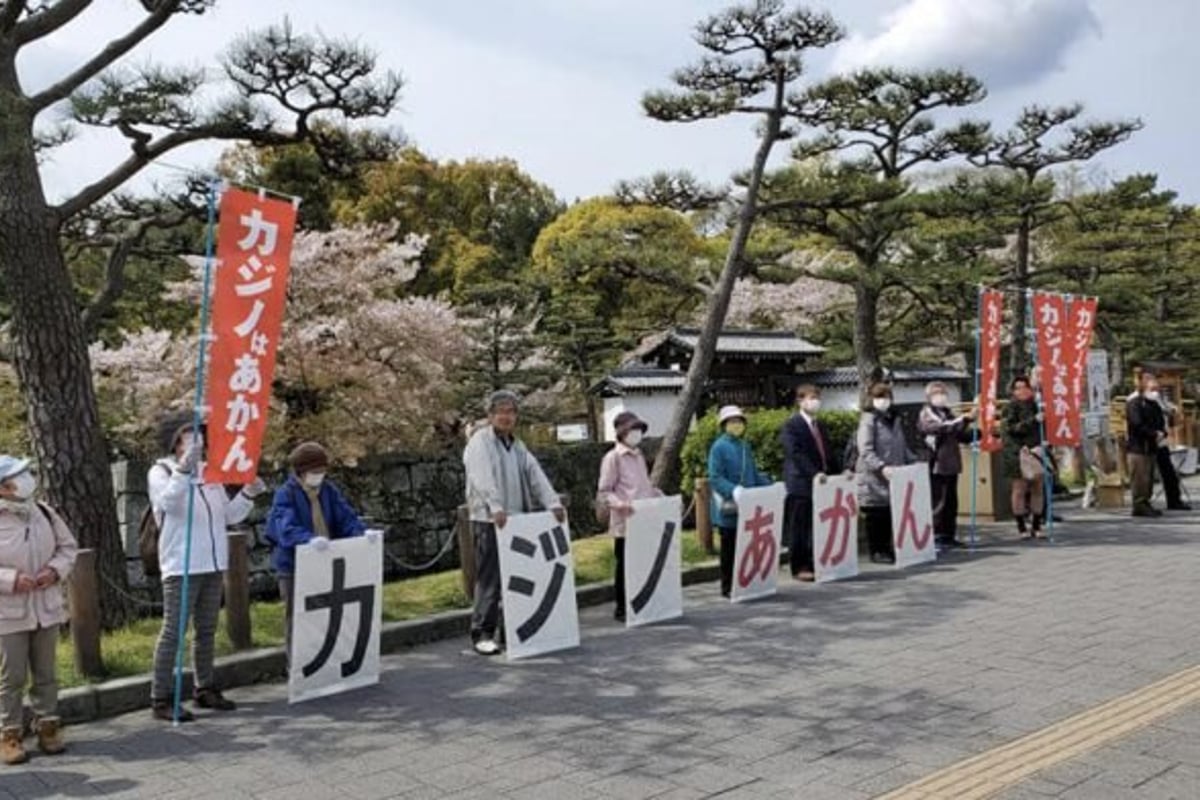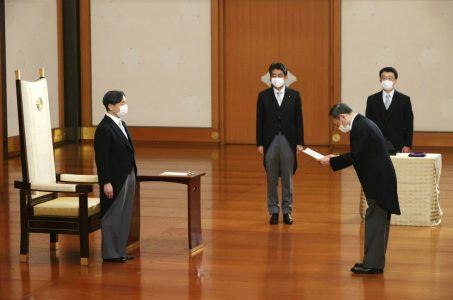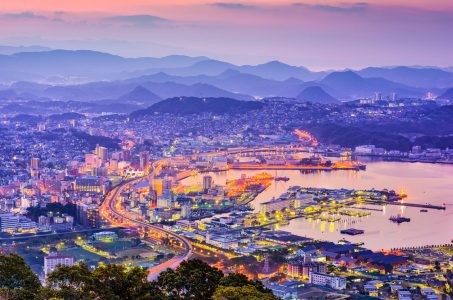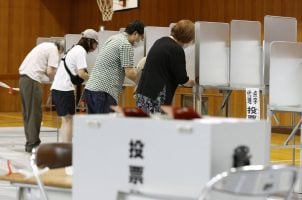Wakayama Anti-IR Effort Can Force Referendum, Fourth City Mulls Casino
Posted on: November 25, 2021, 07:02h.
Last updated on: November 25, 2021, 10:16h.
A group opposed to Wakayama bidding on one of Japan’s three integrated resort (IR) casino licenses says it has gained enough resident signatures to force a local referendum on the matter.

The citizens’ group said this week that it has attained more than 8,000 signatures from city residents. If those signatures are certified by city officials, that number would suffice to move forward a local ballot referendum. The proposition would ask the public whether they support Wakayama becoming a casino destination.
I want us to engage in serious discussions, not just leave big issues like this one to the governor, the mayor, and other politicians,” said Kaya Ikeda, one of the anti-IR campaign leaders, to Akihabara News in Tokyo.
For a citizens-led referendum effort to qualify for a vote, a campaign must collect signatures from at least two percent of the city’s population within a single one-month span. In Wakayama city, the population as of 2020 was approximately 310,000 people, meaning the two percent threshold is 6,200 signatures.
Ceremonial Vote
Citizen-led local referendums in Japan have no legal consequence. Instead, such efforts are purely for the public to voice their position on an issue to their local and prefecture governments.
Citizen referendums are relatively new in Japan. The first occurred in 1996 when a group raised opposition in Tokyo to the capital city moving forward with the construction of a nuclear power plant. After a majority of Tokyo residents issued their opposition to the project, city officials scrapped the nuclear development.
However, the Tokyo government did not need to adhere to the referendum outcome. That will also be true in Wakayama, should the anti-casino effort go to a public poll during a special election.
“I would like to hear the opinions of the residents regardless of whether they agree or disagree with the invitation of IR. Isn’t it the basis of democracy to listen to the voices of citizens about what kind of town development we will provide for ourselves, our children, and our grandchildren?” asked Yasushi Toyoda, another individual involved with the campaign.
Wakayama is finalizing its bid with Clairvest Neem Ventures and Caesars Entertainment to submit to Japan’s central government. Clairvest-Caesars are seeking authorization to build a $4.3 billion integrated resort casino in Wakayama’s Marina City district.
Another City Contemplates Entry
Japan has three IR licenses to award, but there are currently only three cities bidding: Wakayama, Osaka, and Yokohama. However, there could soon be a fourth, by way of Kuwana.
The city, located some 70 air miles east of Osaka, recently requested its Mie Prefecture enter the IR pool, with Kuwana as its preferred casino destination.
Japan’s central lawmakers in Tokyo initially backed the liberalization of commercial casinos in an effort to spur regional economic activity. Kuwana would seemingly satisfy that mission, as the city is not known as a major business hub internationally.
With a population of 141,000 people, Kuwana would easily be the smallest IR candidate. By comparison, Osaka city is home to 2.7 million people, Yokohama 3.8 million people, and Wakayama 310,000 residents.
Related News Articles
Japan PM Yoshihide Suga Retains Key Cabinet Official Linked to Integrated Resorts
Nagasaki Changing IR Design to Make It More Appealing
Chinese Government Could Be Behind Spy Malware Targeting Online Casinos
Most Popular
LOST VEGAS: ‘Tony The Ant’ Spilotro’s Circus Circus Gift Shop
Las Vegas Overstated F1 Race’s Vegas Impact — Report
Mega Millions Reportedly Mulling Substantial Ticket Price Increase
Las Vegas Strip Stabbing Near The Strat Leaves One Man Dead
Most Commented
-
End of the Line for Las Vegas Monorail
— April 5, 2024 — 90 Comments -
Mega Millions Reportedly Mulling Substantial Ticket Price Increase
— April 16, 2024 — 6 Comments -
Long Island Casino Opponents Love New York Licensing Delays
— March 27, 2024 — 5 Comments -
VEGAS MYTHS RE-BUSTED: You Can Buy Legal Weed On the Strip
— March 22, 2024 — 4 Comments
















No comments yet